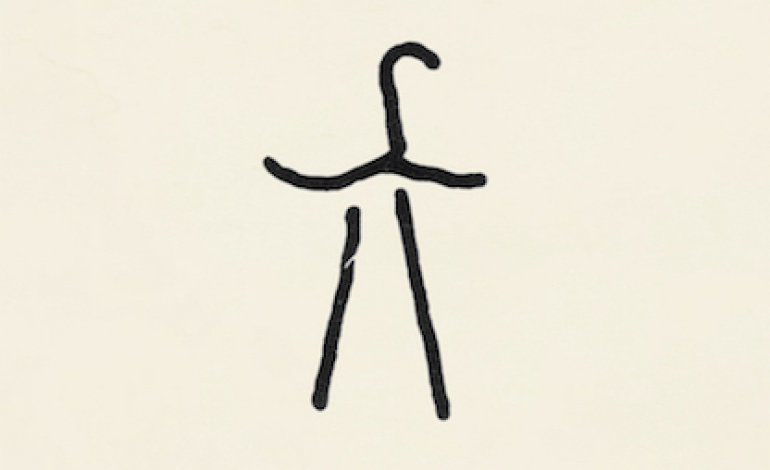

The Lovechild of Greek Folk and Post-Rock
The power duo Xylouris White, composed of Georgios Xylouris and Jim White, come together once again for their third album, Mother. Xylouris has been playing the Cretan laouto, an instrument of the lute family typically found in Greece and Cyprus, professionally since he was twelve. White, on the other hand, is best known as the drummer of the Australian instrumental rock band Dirty Three. Xylouris and White met eighteen years ago in Melbourne while Xylouris was touring with his father and struck up a bond that would prove fruitful decades later. Debuting with Goats in 2014 and following with Black Peak in 2016, Xylouris White continue to churn out new material at an unrelenting pace.
Mother starts off with an extremely earthy and acoustic sound with “In Media Res.” Don’t be fooled into thinking that the acoustic nature of Mother keeps it from being wild as Xylouris’ laouto flutters past abrasive violins and White’s textured percussion ranging anywhere from cowbells to rattles to heavy-set hand drums. A dry wind instrument stutters every once in a while, adding even more depth to the relatively abstract instrumental song. Like a prolonged climax, the majority of the song continuously adds new sonic sensations that are dazingly peaceful yet rambunctious at the same time. Because it was such a chaotic song, Mother starts off on quite an interesting note.
Though “In Media Res” eventually settles into a clear-cut silence, this small catch of breath does not last for long. The punchy and lightning-fast plucked laouto immediately swarms into the forefront on “Only Love,” joined by equally insistent drums. Xylouris’ throaty singing fights for dominance over the other two instruments, creating a sense of urgency too powerful to forget. Along with Xylouris’ moans and belts, the instrumental of “Only Love” is undoubtedly Cretan, but as it is paired with White’s post-rock percussion, the song shifts into a genre-bending giant of a track (even if it is only three minutes and 30 seconds long). Easily one of the most memorable moments on Mother, “Only Love” transcends tradition without straying from it.
Though Xylouris is known for his mastery of the laouto and White of percussion, another stand-out aspect of Mother is Xylouris’ singing. His voice is often imperfect, sometimes even strained. Xylouris really stretches his voice to reach the high notes of “Motorcycle Kondilies,” but this does nothing to take away from the merit of the song. If anything, it adds to the passion that Xylouris easily delivers on the cheery and clearly Grecian-rooted track. Rather than limiting himself to the highs that he must work to reach, Xylouris takes advantage of the bassy tone of his natural singing voice, showing it off on “Spud’s Garden.” Though the laouto and the violins on the track played atop each other during the beginning, the most noteworthy part of the song was the ending, when the laouto and violin slowed down to let Xylouris’ hums stand out. Another vocal highlight was on “Achilles Heel,” where Xylouris guttural moans are so meditative that they begin to resemble Indian music. On tracks where Xylouris’ singing is most effective, White’s drums take a backseat, ensuring a more balanced harmony compared to the album’s hard-hitters.
This doesn’t mean that White’s contributions to Mother are just as background percussion. Even though the seductive lute solo in the beginning of “Daphne” was enticing, the clatter of White’s percussion was the star of the show. Much of the percussion sounded like gentle taps onto household appliances, eventually making room for a more traditional and hollow drum to slowly emerge, giving “Daphne” a suspenseful heartbeat that made its climax all the more enjoyable. The sparse but speedy percussion triplets that echoed throughout the first half of “Call and Response” accented the precision of the finger-style laouto casually zooming by. Eventually, sparseness turns into fullness as the melodies of the laouto become faster than ever and the percussion becomes extremely layered and varied, making every single beat of a drum or rattle of a tambourine profound.
As the album reaches the slow-burning “Lullaby,” listeners are pacified and soothed by a gentle farewell from the iconic duo. Xylouris’ soft voice resonates over the infrequent plucks and strums of his laouto alongside White’s mellow taps of a hollow drum. The violins only garnish the colorful, albeit simple picture that Xylouris White paints with just a laouto and percussion, bringing the criminally short album to a close and ending on a note very far from the chaos of “In Media Res.” Xylouris White has illustrated an unlikely journey through the streets of Greece using only what they know best. Both the mastery of Xylouris White’s own individual talents and the ability to bring such disparate genres together leaves listeners yearning for yet another taste of Mother’s excellence.
